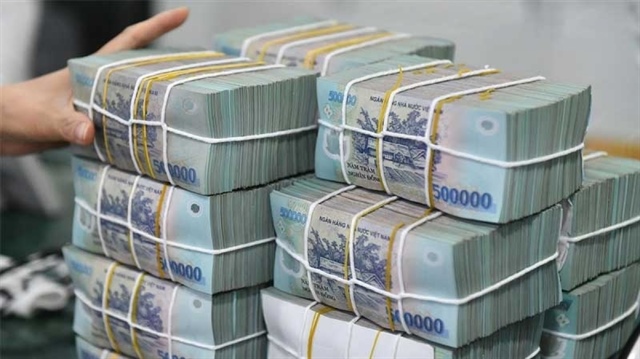Expert opinion: the future of banking M&As
Expert opinion: the future of banking M&As
Dr Bui Quang Tin, lecturer in business administration at the Banking University of Ho Chi Minh City, shared with VIR’s Trang Nguyen his view on the future of bank M&A trends in Vietnam, with a specific view to the opening up of the country's banking industry towards 2020 in line with its ASEAN Economic Community commitments.

As Vietnam is going through a raft of bank M&As, the number of banks is expected to be cut in half, to around 20 banks in the coming years. Do you think this number of banks is still too large and should be reduced further to, say, 5 big banks and a few smaller banks to serve niche and specialist markets?
It is necessary that the number of banks in Vietnam be reduced to some five big banks and a number of smaller banks in the coming time, to meet the market’s needs and be in line with the development and integration requirements of the world economy.
In 5-10 years’ time, the demand for infrastructural investment will be mounting and the country will be in need of big banks that are capable of meeting this trend. In addition, over the next five years, when the ASEAN Economic Community (AEC) comes into full operation, Vietnam will also need them to support local businesses in joining the regional economic integration.
As it is the case, big banks often have a wider geographic network coupled with a good payment system which in turn could break up costs and promote retail banking lines. Big banks, as such, are able to compete with other financial companies that are becoming gradually involved in the financial market.
Tightened banking standards such as Basel I, II and III will also work in favour of large-scale banks with massive capital resources and huge lending volume.
On the other hand, smaller banks are also essential for the country’s socio-economic development. Small banks in Vietnam, at present, have competitive advantages in agricultural and rural banking as well as small and SMEs. They have the comprehensive network and products that meet the needs of specific sectors which remain outside the reach of big banks as of yet.
What do you expect to happen to our banking system post-2015, given that this year is the final year of the 2011-2015 bank restructuring process?
What is likely to happen is that the reform process will be continued as the pressures on domestic banks are building up. In fact, what domestic banks have done up till now is not enough to compete with foreign banks in terms of services and technologies.
A lot of work would need to be done in the coming time including continuing to increase chartered capitals, improving bank governance capacities, the quality of human resources and technologies.
Domestic banks’ chartered capital is still too small compared to regional and international banks. While it remains a complicated issue to raise capital (amongst banks), there are viable alternatives, such as to accelerate the equitisation of state-owned commercial banks, facilitate the formation of large-scale banks and financial groups or encourage small-bank mergers to form bigger and stronger banks.
Bank organisational structure needs to be improved from the top to the bottom in accordance with international practices and domestic banks should consider developing overseas branches in countries with development potential including China and other ASEAN countries. In addition, domestic banks should aim to attract foreign strategic partners to assist them in managing bank operations, modernising banking technologies and improve management and governance capacity.
Local banks must also focus on their human resources and technologies, at the same time, and work on diversifying their products and services, with special attention to modern banking services, to ensure strong and sustainable development in the future and to enhance competitiveness with regional and international banks during the integration process.
Do you think the government should continue with the bank restructuring in the coming years should the country's banking industry fully open up in 2020 in line with the AEC commitments?
Given the fierce competition in the banking sector itself, domestic banks ought to seek for M&A opportunities or to restructure and reform themselves to become stronger and keep their market shares in the formation of the AEC and integration into the world economy.
Bank restructuring will continue as a matter of fact and it should be seen as an opportunity for the Vietnamese banking industry to enhance its competitiveness and business performance.
M&As will add values to banks in terms of better and larger-scale economic benefits, creditability, branding, cost reduction, customer database and networking. M&As will thus be carried on amongst big banks, big banks and small banks, and small banks, too.
I believe that many foreign banks will also enter Vietnam given the AEC approaching finalisation by the end of this year. This trend will put a lot of pressure onto domestic banks and force them to grow further to compete with foreign banks.
In addition to the AEC formation, under the country’s World Trade Organization commitments, the banking sector will be fully opened up by 2020 to welcome foreign banks. Meanwhile, Korean and Indian banks have expressed their intentions to enter the Vietnamese financial market.


























